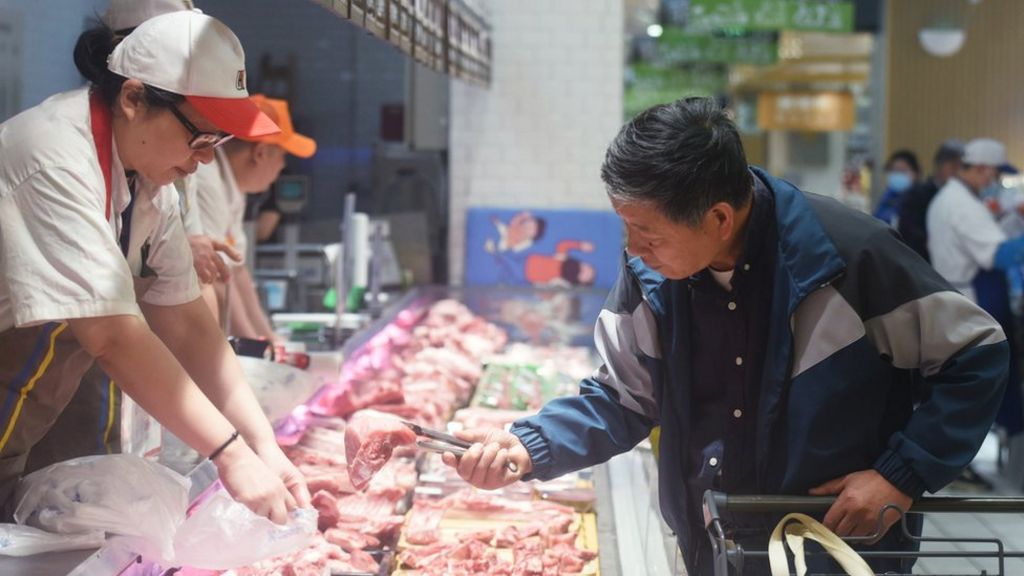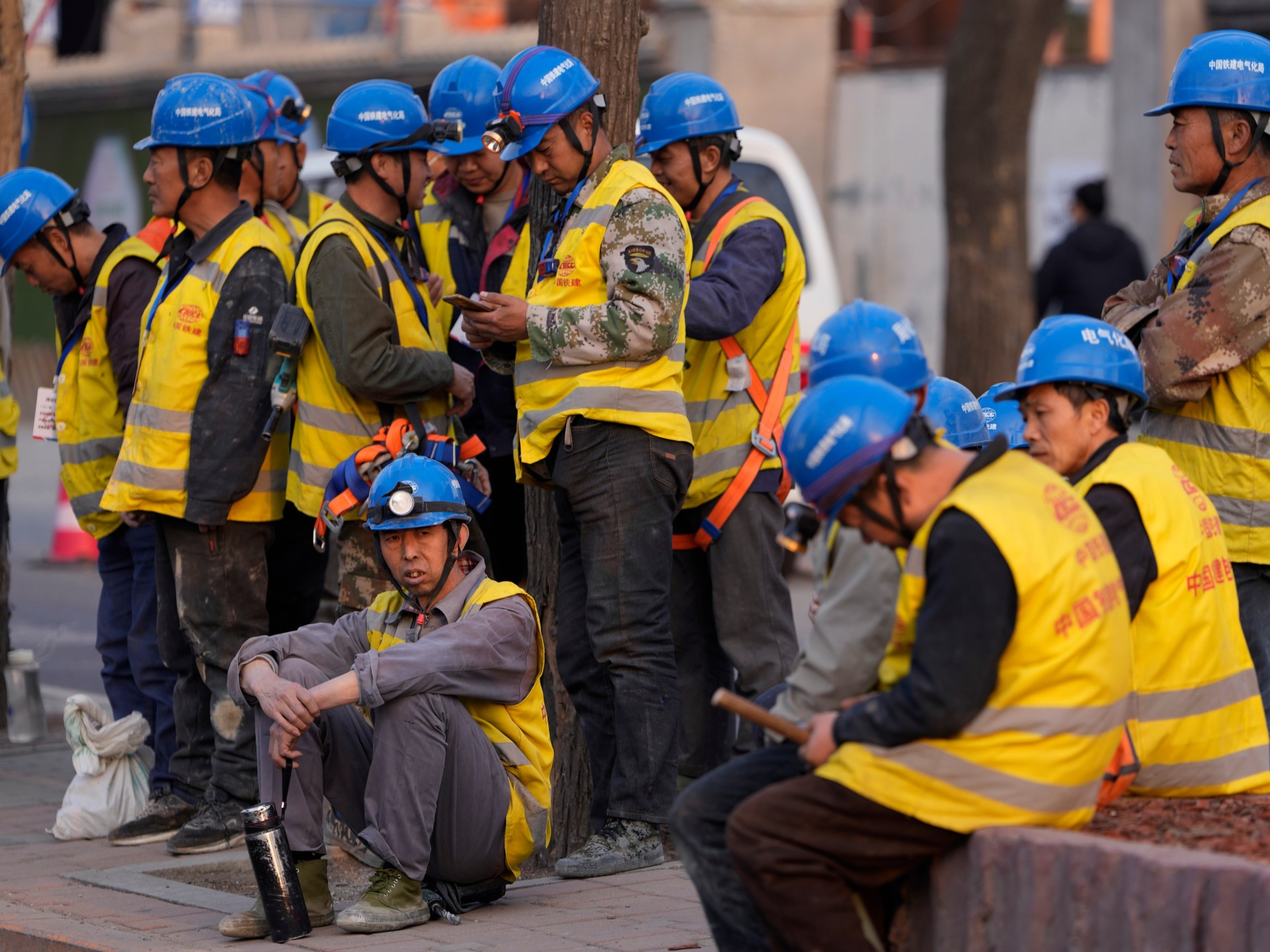Economy
Posthaste: Here are three promising data points that show the Canadian economy is ready to rebound – Financial Post


Good morning!
Rays (plural) of good news are piercing through the gloom surrounding the Canadian economy.
And not surprisingly, the country’s resilient housing sector is among the first to report a rebound.
Home sales jumped 53.2 per cent in May month-over-month, suggesting that April’s dramatic plunge in sales may have been the market’s low point.
Another crucial statistic was new listings that rose 47.5 per cent during May, compared to April, according to the Toronto Regional Real Estate Board.
The Real Estate Board of Greater Vancouver had also reported on Tuesday that homes sales jumped an unadjusted 34 per cent in May from April, while prices remained flat month-on-month. Benchmark prices rose 2.9 per cent to $1.03 million from a year ago.
Of course, these averages look good as the economy was wallowing in complete uncertainty in April, decimating homes sales and upending market trends.
While home sales in Toronto remain 53.7 per cent lower than May 2019, the decline was less than the 67.1 per cent year-over-year decline reported for April 2020.
“The MLS Home Price Index Composite Benchmark price was virtually unchanged in May 2020 compared to April 2020,” TRREB noted. “On a year-over-year basis, the composite benchmark was up by 9.4 per cent. The average selling price for all home types combined was up by three per cent compared to May 2019 to $863,599. On a seasonally adjusted basis, the average selling price was up by 4.6 per cent month-over-month compared to April 2020.”
A May poll by TRREB showed 27 per cent of the Greater Toronto Area households were looking to purchase a home over the next year, suggesting that sales may improve further in the coming months provided the economy is not adversely hit by new waves of the pandemic.
“As we move toward recovery, the housing sector will be a key driver of growth as consumer confidence increases and more households look to take advantage of very low borrowing costs,” said TRREB CEO John DiMichele.
Investors will also be watching a key metric that indicate where prices are headed next, especially in the pricey Vancouver real estate market.
Sales-to-active listings ratio for May 2020 was 15 per cent in the Vancouver region, detached homes at 13.5 per cent, 18.9 per cent for townhomes, and 14.8 per cent for apartments.
“Generally, analysts say downward pressure on home prices occurs when the ratio dips below 12 per cent for a sustained period, while home prices often experience upward pressure when it surpasses 20 per cent over several months,” noted the Real Estate Board of Greater Vancouver.
TRREB is expecting prices to remain stable over time, with some possible uptick.
“With home sales and new listings continuing to trend in unison in May, market conditions remained balanced. This balance was evidenced by year-over-year average price growth slightly above the Bank of Canada’s long-term target for inflation,” said Jason Mercer, TRREB’s chief market analyst. “If current market conditions are sustained during the gradual re-opening of the GTA economy, a moderate pace of year-over-year price growth could continue as we move through the spring and summer months.”
***
Another glimmer of hope that the economy is returning to some form of normalcy has come from the transportation sector.
The Canadian National Railway Co. said it saw a 4 per cent increase in volumes of good shipped in May compared to April.
While the recovery is expected to be slow, it’s a positive sign after shipments hit bottom last month, the company’s chief financial officer Ghislain Houle said Tuesday at the UBS Global Industrials & Transportation virtual conference, according to Bloomberg.
“I think we’re seeing the light at the end of the tunnel,” Houle said. “Hopefully, it will hold.”
Canadian Pacific Railway Ltd. also said it set a new record for shipping Canadian grain and grain products in May, moving 2.80 million metric tonnes in the month.
**
Finally, yet another sign consumers are ready to put COVID-19 behind them is the 113,224 new light vehicles sold in Canada in May, a 147 per cent jump over April’s sales, according to a report by DesRosiers Automotive Consultants Inc. Still, May 2020 car sales were down considerably compared to the same period last year.
“It’s a measure of the strange times in which we find ourselves in that a market decline of only 44 per cent can seem like a positive sign. However, following the estimated 74.6 per cent decline in April — which sent Canadian new light vehicle sales levels back in time to roughly the early 1950’s — May’s year over year decline can evoke a touch of cautious optimism as the first tentative shoots of recovery spring up from a badly damaged marketplace,” the consultants said in a statement.
“Of course, the ongoing situation remains in flux and an already trying year could prove to have a few tricks left up its sleeves yet,” the consultants warned.
They are wispy green shoots of recovery — but we will take it.
_____________________________________________
Was this newsletter forwarded to you? Sign up here to get it delivered to your inbox.
_____________________________________________________________


PROTESTS GO GLOBAL: Protesters hold placards next to the statue of 19th century British Prime Minister Benjamin Disraeli outside St George’s Hall in Liverpool, northwest England, on June 2, 2020, during demonstration after George Floyd, an unarmed black man who died after a police officer knelt on his neck during an arrest in Minneapolis, USA. – The city of Liverpool lit up their civic buildings in memory of George Floyd on June 2 the death of whom in Minneapolis while in police custody has sparked days of unrest in the US city and beyond. Paul Ellis/AFP via Getty Images
_______________________________________________________


- Bank of Canada to make an interest rate announcement at 10 a.m. ET
- Teck Resources Ltd. hosts a conference call to discuss its 2019 Sustainability Report and strategy
- Quebec’s Treasury Board President Christian Dube and Finance Minister Eric Girard to discuss a bill to mitigate the effects of the pandemic and quickly revive the Quebec economy
- A Papua New Guinea court is set to rule on whether Barrick Gold Corp. can proceed with a legal challenge over the government’s refusal to extend its lease on the Porgera gold mine
- Case management conference for Huawei CFO Meng Wanzhou in Vancouver
- Transport Minister Marc Garneau, CEO of Vancouver Fraser Port Authority Robin Silvester, Robyn McVicker, a vice-president at YVR and Tim Strauss, vice-president of Air Canada cargo take part in Transportation Forum 2020
- Notable Earnings: Stingray Group Inc., Canada Goose Holdings Inc., AutoCanada Inc.
_______________________________________________________




_______________________________________________________


____________________________________________________


Some of the biggest cannabis players when legalization took effect 20 months ago have successfully held on to their dominant positions, despite a year of bankruptcies, downsizings, revoked licences, executive firings, mass layoffs and a long market selloff, writes Vanmala Subramaniam.


____________________________________________________


It is hard enough to make money in the stock market, even without the world shut down due to a global pandemic. In fact, studies have proven that the average stock actually goes down. So how does one make money? Well, it’s all in the math. A stock can “only” decline by 100 per cent. But if you have a big winner, you can make 1,000 per cent returns, or more. A winner or two can more than make up for many losers, writes Peter Hodson.
____________________________________________________
Today’s Posthaste was written by Yadullah Hussain (@Yad_Fpenergy), with files from The Canadian Press, Thomson Reuters and Bloomberg.
Have a story idea, pitch, embargoed report, or a suggestion for this newsletter? Email us at posthaste@postmedia.com, or hit reply to send us a note.
Economy
China economy grows faster than expected in first quarter – BBC.com


China’s economy made a stronger-than-expected start to the year, even as the crisis in its property sector deepened.
According to official data, gross domestic product (GDP) expanded by 5.3% in the first three months of 2024, compared to a year earlier.
That beat expectations the world’s second largest economy could see growth slow to 4.6% in the first quarter.
Last month, Beijing set an ambitious annual growth target for world’s second largest economy of “around 5%”.
Data from the National Bureau of Statistics (NBS) also showed first quarter retail sales growth, a key gauge of China’s consumer confidence, fell to 3.1%.
“You cannot manufacture growth forever so we really need to see households come to the party if China wants to hit that around 5% growth target,” Harry Murphy Cruise from Moody’s Analytics told the BBC.
In the same period property investment fell 9.5%, highlighting the challenges faced by China’s real estate firms.
The figures came as China continues to struggle with an ongoing property market crisis. According to the International Monetary Fund (IMF), the sector accounts for around 20% of the economy.
The latest data also showed new home prices fell at the fastest pace for more than eight years in March.
The real estate industry crisis has been highlighted in January when property giant Evergrande was ordered to liquidate by a court in Hong Kong.
Rival developers Country Garden and Shimao have also been hit with a winding-up petitions in the city.
Last week, credit ratings agency Fitch cut its outlook for China, citing increasing risks to the country’s finances as it faces economic challenges.
At the annual gathering of China’s leaders in March officials said the economy grew by 5.2% in 2023.
For decades the Chinese economy expanded at a stellar rate, with official figures putting its GDP growing at an average of close to 10% a year.
Economy
Stumbling Toward a Deal — as the Economy Surges – AGF Perspectives


Insights and Market Perspectives
CONGRESS IS STUMBLING TOWARD PASSAGE of legislation late this week that would provide enormous aid to Ukraine, Israel and Taiwan. It’s a VERY messy process — typically — that has obscured the major development for financial markets: red hot economic growth, far exceeding expectations.
WE’LL GET TO THE CONGRESSIONAL BRAWL in a second, but first — dramatic economic growth is having a major impact on interest rates, with the Atlanta Fed GDP Now predicting economic growth at 2.8%, after yesterday’s blowout retail sales report.
EVEN CHINA, considered a basket case a few months ago, is blasting off — with Beijing reporting 5.3% first quarter economic growth.
WITH THE U.S. TEN YEAR BOND YIELD now above 4.5%, this has to be a shock for the Federal Reserve, which may be frozen for months to come — unable to cut rates as long as the economy is growing above trend with inflation not falling to the Fed’s 2% goal.
THERE SURELY WON’T BE ANY FISCAL RESTRAINT, as Congress moves awkwardly toward passage of a nearly $100 billion spending package for allies.
THIS IS A VERY FLUID fluid environment — even a Tik-Tok ban is included — with House Speaker Mike Johnson preparing four separate bills in a dizzying process that may require support from Democrats — which could cost Johnson his job.
BOTTOM LINE: This is sausage-making at its ultimate, as Democrats prepare to bail out Johnson, as angry right wingers demand provisions to protect the border, and as aid seems increasingly likely — surely for Israel, probably for Ukraine. It’s only Tuesday, there’s a long way to go; details won’t come into focus for a few more days.
IN THE MEANTIME, THE ECONOMY CONTINUES TO ROAR — it’s too strong, in our opinion, to be sustainable.
THESE DRAMATIC STORIES MAY HAVE TO TAKE A BACK SEAT as the gleeful media is obsessed with the Donald Trump trial. The buzz after the first day was whether Trump dozed off yesterday during the jury selection process, Our advice to Trump — get some espresso, the last thing you want is opponents calling you “sleepy Don.”
The views expressed in this blog are those of the author and do not necessarily represent the opinions of AGF, its subsidiaries or any of its affiliated companies, funds or investment strategies.
The views expressed in this blog are provided as a general source of information based on information available as of the date of publication and should not be considered as personal investment advice or an offer or solicitation to buy and/or sell securities. Speculation or stated believes about future events, such as market or economic conditions, company or security performance, or other projections represent the beliefs of the author and do not necessarily represent the view of AGF, its subsidiaries or any of its affiliated companies, funds or investment strategies. Every effort has been made to ensure accuracy in these commentaries at the time of publication; however, accuracy cannot be guaranteed. Market conditions may change and AGF accepts no responsibility for individual investment decisions arising from the use of or reliance on the information contained herein. Any financial projections are based on the opinions of the author and should not be considered as a forecast. The forward looking statements and opinions may be affected by changing economic circumstances and are subject to a number of uncertainties that may cause actual results to differ materially from those contemplated in the forward looking statements. The information contained in this commentary is designed to provide you with general information related to the political and economic environment in the United States. It is not intended to be comprehensive investment advice applicable to the circumstances of the individual.
AGF Investments is a group of wholly owned subsidiaries of AGF Management Limited, a Canadian reporting issuer. The subsidiaries included in AGF Investments are AGF Investments Inc. (AGFI), AGF Investments America Inc. (AGFA), AGF Investments LLC (AGFUS) and AGF International Advisors Company Limited (AGFIA). AGFA and AGFUS are registered advisors in the U.S. AGFI is a registered as a portfolio manager across Canadian securities commissions. AGFIA is regulated by the Central Bank of Ireland and registered with the Australian Securities & Investments Commission. The subsidiaries that form AGF Investments manage a variety of mandates comprised of equity, fixed income and balanced assets.
About AGF Management Limited
Founded in 1957, AGF Management Limited (AGF) is an independent and globally diverse asset management firm. AGF brings a disciplined approach to delivering excellence in investment management through its fundamental, quantitative, alternative and high-net-worth businesses focused on providing an exceptional client experience. AGF’s suite of investment solutions extends globally to a wide range of clients, from financial advisors and individual investors to institutional investors including pension plans, corporate plans, sovereign wealth funds and endowments and foundations.
For further information, please visit AGF.com.
©2024 AGF Management Limited. All rights reserved.
Economy
China’s economy beats expectations, growing 5.3 percent in first quarter – Al Jazeera English


Statistics agency says economy has made ‘good start’ to the year under the leadership of Chinese President Xi Jinping.
China’s economy grew faster than expected in the first three months of the year, a boost for policymakers grappling with a property-sector crisis, weak consumer demand and mounting government debt.
Gross domestic product (GDP) grew by 5.3 percent in the first quarter, data released by the National Bureau of Statistics (NBS) showed on Tuesday, comfortably above forecasts and up from a 5.2 percent expansion in the previous quarter.
By sector, industrial production and agriculture grew by 6.1 percent and 3.8 percent, respectively, while services grew by 5 percent, according to NBS data.
The NBS said in a statement that the economy had made a “good start” under “the strong leadership” of the Central Committee of the Communist Party of China and President Xi Jinping.
“As a result, the policies continued to take effect, production and demands maintained stable and witnessed an increase, employment and prices were generally stable, market confidence continued to boost, and high-quality development made new progress,” the statistics agency said.
The stronger-than-expected figures came days after China reported that exports and imports declined 7.5 percent and 1.9 percent, respectively, in March, missing expectations.
The world’s second-largest economy has struggled to sustain a recovery from the COVID-19 pandemic amid a range of longstanding structural challenges, including a hugely indebted real estate sector and a shrinking population.
Fitch Ratings earlier this month downgraded China’s sovereign credit outlook to negative, citing “increasing risks to China’s public finance outlook” as Beijing attempts to move away from real estate-led growth.
Beijing last month set a 5 percent growth target for 2024, a rate that would beat most developed economies but be among the country’s slowest expansions since 1990.
Officials have unveiled a number of fiscal and monetary policy measures to boost the economy, including $1.8 trillion in spending on major construction and infrastructure projects.
-
Media23 hours ago
DJT Stock Plunges After Trump Media Files to Issue Shares
-
Business22 hours ago
FFAW, ASP Pleased With Resumption of Crab Fishery – VOCM
-
Media22 hours ago
Marjorie Taylor Greene won’t say what happened to her Trump Media stock
-
Business23 hours ago
Javier Blas 10 Things Oil Traders Need to Know About Iran's Attack on Israel – OilPrice.com
-



 Politics22 hours ago
Politics22 hours agoIn cutting out politics, A24 movie 'Civil War' fails viewers – Los Angeles Times
-
Art24 hours ago
It’s Time to Remove Father Rupnik’s Art – National Catholic Register
-
Business20 hours ago
Tesla May Be Headed For Massive Layoffs As Woes Mount: Reports – InsideEVs
-
Investment23 hours ago
A Once-in-a-Generation Investment Opportunity: 1 Top Artificial Intelligence (AI) Stock to Buy Hand Over Fist in April … – Yahoo Finance





